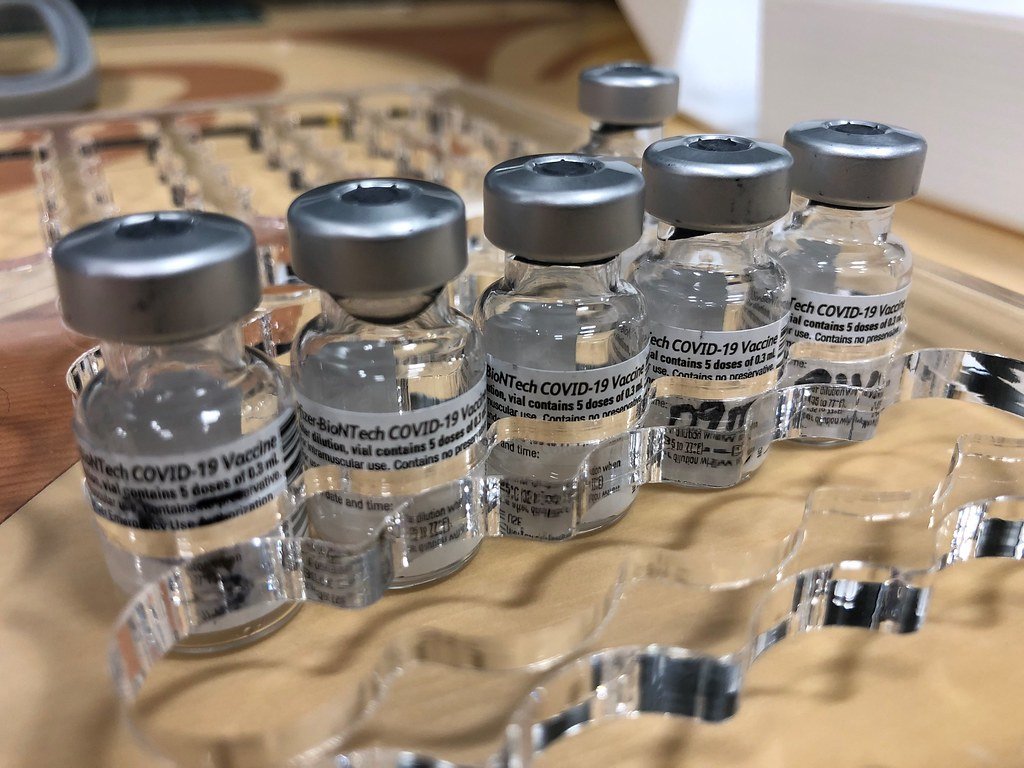(Health) - Understanding Vaccine and Vaccination
1 comment
Everywhere around us there are microbes and this includes the room or office where you are currently. They are on your cloths, your phone, your chair, room, and even body. Their existence everywhere doesn't mean that they are all disease causing pathogens rather they are majority of the microbes are not harmful.
When it comes to the disease causing pathogens, our body knows how to fight them very well and they do this using the immune system. The immune system is like our our body barrack where our immune soldiers help prevent us from becoming sick. One of the way our body prevents us from falling sick includes external factors like our skin. The skin is our biggest barrier against pathogens that could be harmful to us. Asides from the skin being an organ that protects us, Coughing can also be a way of preventing microbes from getting into the body, also tears from our cry can also be an immune response as it possesses some enzymes that would kill certain germs.
In all this, the body has some main warriors for the purpose of preventing diseases, and this is where the white blood cells, and T-Cells come in. When a pathogen comes into the body, it recognizes it as an antigen. The antigen might be a protein, chemical, bacteria, virus, fungi, toxins, pollen, or even drugs. When these foreign antigenic particles come into the body, it releases antibodies that can respond and fight the antigen so as to keep the body safe. For every antigen that is being fought by the body's immune system, the body tends to keep a memory of them via the memory cells (B-cells)
Although the body does its job in keeping us safe, we are not able to completely destroy some pathogens when they come in full shape and would require additional help like medications to combat them. But throughout our modern history, we have encountered so many deadly diseases and the majority of them have been deadly most especially viruses. There have been a lot of epidermic and pandemic and these pandemics led to lots of death so in other to mitigate this type of event, vaccines were created to prevent them.
The story of vaccine isn't like that of the egg and the chicken, which came first. We all know that for a vaccine to be created, there need to be an first time outbreak which means that there cannot be a vaccine for a diseases that hasn't infected us before in history, also there are some diseases that we have not been able to create vaccines for. Vaccines will usually contain the antigen, surfactants, Adjuvants, diluent, and stabilizers. For a vaccine to get into the public, it needs to pass through different phases of tests ranging from phase 1, phase 2, and phase three before it becomes approved.
Vaccines usually contain antigens which are injected to the body so the body's immune system can fight them out and create memory cells to be able to fight them in the future. These vaccines can be dead viruses, protein particles of the viruses, or weakened pathogens. As a child, if you get a vaccine at an early age, the vaccine isn't the real deal (pathogen), it can either be a dead, or weakened virus, or a protein of the virus. When the virus shows up in the body again, the immune system is able to fight it better, faster, and easier.
Herd Immunity is another word that you might have heard in the past. As you would expect, not everyone will be willing to take a vaccine especially people who didn't have an experience of the disease outbreak. As terrible as the Covid-19 virus hit the world, I have seen a few people who would tell you that they are not getting the vaccine, in fact, the vaccine isn't readily available like that compared to its severity and fear around the world but when the number of people who do not get the vaccine are insignificant, compare to those who are vaccinated, then it means there is a herd immunity to the virus where majority of the people around the region are immune to it thereby preventing it from spreading even if a person who wasn't vaccinated gets infected.
Read More
- https://my.clevelandclinic.org/health/body/24669-b-cells
- https://www.cancer.gov/publications/dictionaries/cancer-terms/def/antigen
- https://www.who.int/health-topics/vaccines-and-immunization
- https://www.cdc.gov/vaccines/index.html
- https://www.nhs.uk/vaccinations/
- https://www.who.int/news-room/feature-stories
- https://www.fda.gov/vaccines-blood-biologics
- https://www.who.int/news-room/feature-stories/detail/how-do-vaccines-work
- https://www.cdc.gov/vaccines/basics/index.html
- https://www.hhs.gov/immunization/basics/vaccine-ingredients/index.html
- https://www.chop.edu/vaccine-education-center



Comments